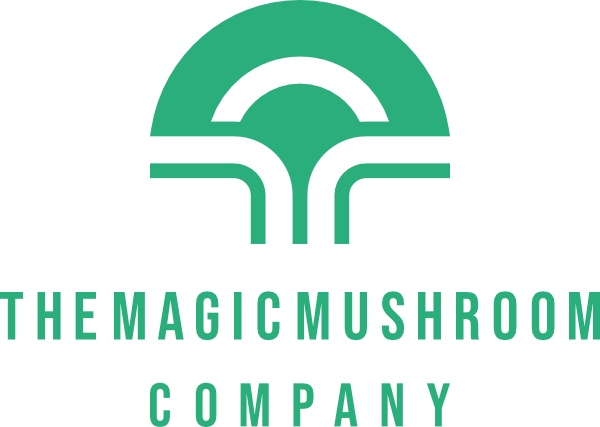Hallucinogens are a class of psychedelic drug that cause sensory perceptions to shift. To put it simply, hallucinogens make the user hallucinate – meaning that sounds, sights, smells and even tastes may appear to be real when they are not. Psychedelics have been used for millennia by people from various cultures across the globe.
Hallucinogens have a wide array of benefits and uses, and different people consume these drugs for different reasons. While some may use psychedelics to enhance creativity, others may use the substances as part of religious ceremonies. Alternatively, many people take hallucinogens recreationally, a better choice than addictive chemical-based drugs.
That being said, there seems to be an exception to every rule, and on rare occasions some will become psychologically addicted. As with all choices in life, there are pros and cons to taking psychedelics.
Different Usages
Psychedelic drugs are enjoyed for a number of very good reasons. Below you will find the four most popular usages for hallucinogenic drugs.
- Creative Inspiration
One only has to watch the movie Moulin Rouge to know that artists, poets and writers are no strangers to psychedelic inspiration. - Spiritual Enlightenment
Psychedelics are commonly used in the quest to find enlightenment, as the drugs invoke spiritual visions reminiscent of the Divine. Whether or not this profound experience is an altered perception of reality, or reality itself, remains a mystery. Hallucinogens have been used throughout history as part of shamanic rituals, as well as in many more religions, including Christianity. - Recreational Usage
These days, psychedelics are perhaps most commonly used recreationally and socially. Some take these drugs to escape reality, while others use hallucinogens as a means of relieving stress. - Therapeutic Usage
Many psychedelic users use hallucinogens in order to alter an emotional state of being, or a specific mindset. In modern times science has revealed that psychedelics can be used as part of psychotherapy.
While not all hallucinogens have been approved for medical use, there are certainly a few that have. Many are still undergoing scientific testing to determine the psychotherapeutic effects on emotional stability in terms of mood-related disorders.
One 2017 study revealed anecdotal reports that point toward ayahuasca as a potential treatment for mental health issues. The research indicates that ayahuasca may even assist in the treatment of substance disorders, but as of yet the research is still in its early stages.
How Hallucinogens Work
Studies suggest that psychedelics are effective (at the very least partially). Research has indicated that hallucinogens cause a temporary disruption in chemical-communications between the brain and spinal cord. It should be noted that certain psychedelics are known to inhibit the release of the hormone serotonin. Serotonin is an important chemical because it is involved in mood, sleep, sensory perception, hunger, body temperature, muscle control and sexual behaviour. Other psychedelics interfere with a different chemical, known as glutamate.
Popular Hallucinogens
While some psychedelics are found in mushrooms or plants, others are man-made. But no matter which type of hallucinogen you take, psychedelics may impact the mood, and cause reality to appear unreal. At times, this can be a frightening experience. That being said, some of the more popular psychedelics include:
-
- LSD
- DMT
- Ayahuasca
- Kat
- Mescaline
- Psilocybin
Psychedelics that fall into the subgenre of dissociative drugs include:
-
- Salvia
- Ketamine
- Dextromethorphan
- Phencyclidine (PCP)
Risks and Effects
The art of experiencing alternate realities or hallucinations is often referred to colloquially as “tripping.” Undesirable hallucinations are not out of the question, and these are known as bad trips.
The trip itself refers to the hallucinogenic experience, and commonly sets in between 20 and 90 minutes of consuming a psychedelic. The trips generally last between 6 and 12 hours, although with Salvia it tends to last less than half an hour.
Although tripping may seem desirable to many, taking psychedelics can pose potential risks such as psychological and physical damage. By nature, psychedelics can cause users to experience significant distortions in their perception of reality.
The fact that hallucinogens cause experiences that seem real to occur within the mind, is not always rainbows and butterflies. In fact, psychedelics have been known to cause a serious lack in judgment that could be defined as full-on dangerous. For example, a person may believe themselves capable of flying, whereupon they may leap from a tall building.
Not much is known in terms of the long-term impact of psychedelics. However, research has revealed that the recreational use of ketamine leads to urological conditions and impaired memory. PCP, on the other hand, may cause effects that last up to a year or more, including depression, anxiety, suicidal thoughts, speech problems, memory loss, and weight loss.
To overdose on PCP may even cause comas, seizures, and fatalities – particularly when used in combination with other drugs. Alternatively, the long-term impact could include psychosis or flashbacks, as well as perceptual issues.
Hallucinogens are a class of psychedelic drugs that causes sensory perceptions to shift. To put it simply, hallucinogens make the user hallucinate – meaning that sounds, sights, smells, and even tastes may appear to be real when they are not. Psychedelics have been used for millennia by people from various cultures across the globe.
Hallucinogens have a wide array of benefits and uses, and different people consume these drugs for different reasons. While some may use psychedelics to enhance creativity, others may use the substances as part of religious ceremonies. Alternatively, many people take hallucinogens recreationally, a better choice than addictive chemical-based drugs.
That being said, there seems to be an exception to every rule, and on rare occasions, some will become psychologically addicted. As with all choices in life, there are pros and cons to taking psychedelics.


